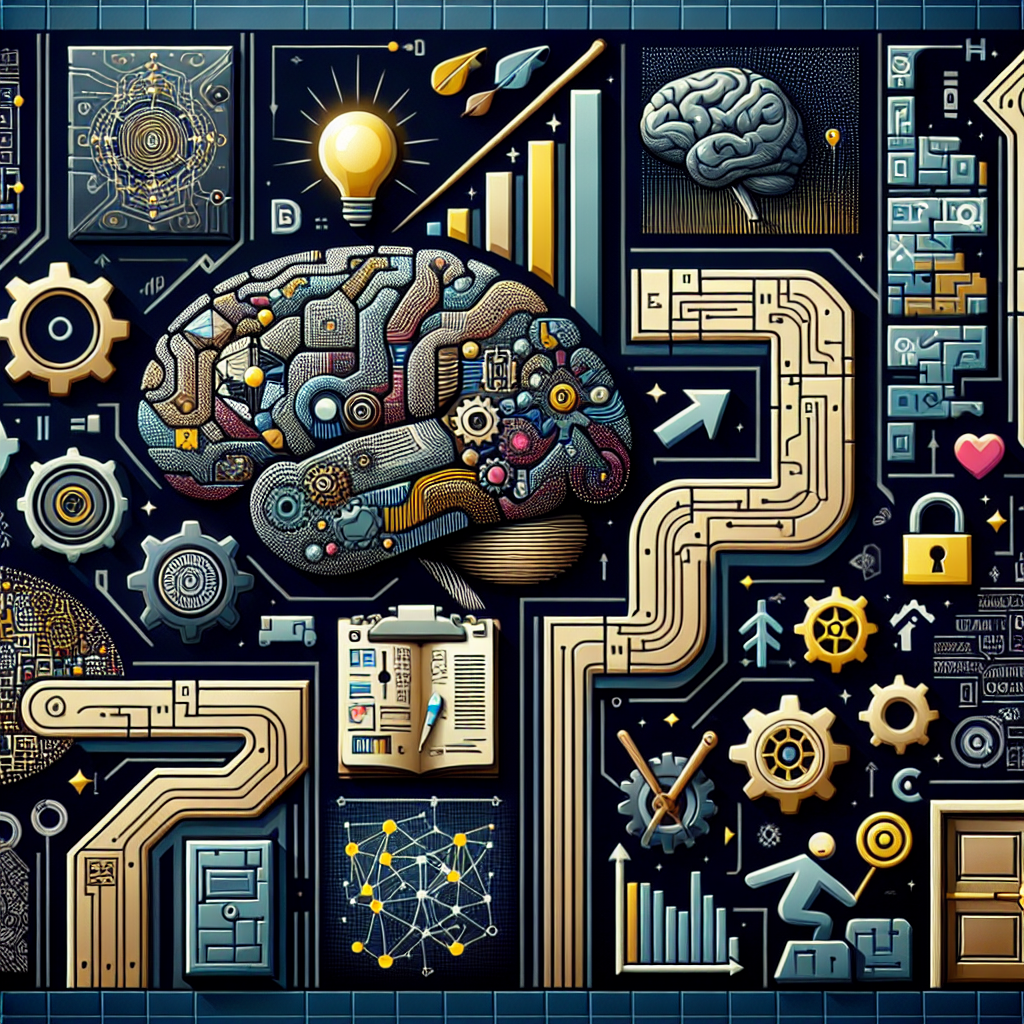Artificial General Intelligence (AGI) is the ultimate goal in the field of artificial intelligence, representing a system that can understand, learn, and apply knowledge in a way that is indistinguishable from human intelligence. While current AI systems excel at specific tasks, such as image recognition, language translation, and game playing, they lack the ability to generalize their knowledge and skills across different domains. The quest for AGI presents a number of challenges and opportunities that researchers and developers must address in order to achieve this ambitious goal.
Challenges in the Quest for AGI
1. Understanding Human Intelligence: One of the biggest challenges in developing AGI is understanding the complex workings of the human brain. While researchers have made significant progress in mapping out the brain’s structure and functions, there is still much to learn about how different regions of the brain interact to produce intelligence.
2. Generalization: Current AI systems are highly specialized, meaning they excel at specific tasks but struggle when faced with new, unfamiliar situations. Achieving AGI requires developing algorithms that can generalize their knowledge and skills across different domains, similar to how humans can apply what they have learned in one context to solve problems in another.
3. Common Sense Reasoning: Humans possess a wealth of common sense knowledge that allows us to navigate the world and make decisions based on our understanding of how things work. Developing AI systems that can reason in a similar way is a key challenge in achieving AGI, as current systems often lack this fundamental ability.
4. Ethical and Societal Implications: As AI technology continues to advance, there are growing concerns about the ethical and societal implications of developing AGI. Issues such as job displacement, algorithmic bias, and the potential for misuse of AI systems raise important questions about how AGI should be developed and deployed.
5. Computational Complexity: Achieving AGI requires building systems that are capable of processing vast amounts of data and performing complex computations in real time. Overcoming the computational challenges involved in developing AGI is a significant hurdle that researchers must address.
Opportunities in the Quest for AGI
1. Innovation and Progress: The quest for AGI is driving innovation in the field of artificial intelligence, leading to breakthroughs in areas such as machine learning, natural language processing, and robotics. As researchers work towards achieving AGI, they are uncovering new insights and developing novel techniques that have the potential to revolutionize AI technology.
2. Cross-Disciplinary Collaboration: Achieving AGI requires expertise from a wide range of disciplines, including computer science, neuroscience, psychology, and philosophy. The quest for AGI is bringing together researchers from diverse backgrounds to collaborate and share ideas, leading to a more holistic approach to understanding intelligence.
3. Impact on Society: The development of AGI has the potential to have a profound impact on society, transforming industries, improving healthcare, and enhancing our quality of life. By developing AI systems that possess human-like intelligence, we can unlock new opportunities for innovation and address some of the most pressing challenges facing humanity.
4. Personalized and Adaptive Technology: AGI has the potential to revolutionize the way we interact with technology, enabling personalized and adaptive systems that can anticipate our needs and preferences. From healthcare to education to entertainment, AGI-powered systems have the potential to enhance our daily lives and improve the way we engage with the world around us.
5. Scientific Discovery: The quest for AGI is not just about building intelligent machines; it is also about gaining a deeper understanding of intelligence itself. By studying how the human brain processes information and learns, researchers are uncovering new insights into the nature of intelligence and consciousness, leading to advances in fields such as cognitive science and neuroscience.
FAQs
Q: How close are we to achieving AGI?
A: While significant progress has been made in the field of artificial intelligence, achieving AGI remains a daunting challenge that may take decades to accomplish. Researchers continue to work towards developing AI systems that can generalize their knowledge and skills across different domains, but there is still much to learn about the complexities of human intelligence.
Q: What are the potential risks of AGI?
A: As AI technology continues to advance, there are growing concerns about the ethical and societal implications of developing AGI. Issues such as job displacement, algorithmic bias, and the potential for misuse of AI systems raise important questions about how AGI should be developed and deployed. It is important for researchers and policymakers to consider these risks and work towards developing AI systems that are safe, transparent, and beneficial for society.
Q: How can I get involved in the quest for AGI?
A: There are many ways to contribute to the development of AGI, whether you are a researcher, developer, or enthusiast. By studying computer science, neuroscience, psychology, or related fields, you can gain the skills and knowledge needed to work on AGI projects. Additionally, participating in AI research competitions, attending conferences and workshops, and joining online communities can help you stay informed about the latest developments in the field of AGI.
In conclusion, the quest for Artificial General Intelligence presents a number of challenges and opportunities that researchers and developers must address in order to achieve this ambitious goal. By understanding the complexities of human intelligence, developing algorithms that can generalize knowledge and skills, and addressing ethical and societal implications, we can work towards building AI systems that possess human-like intelligence. The potential benefits of AGI are vast, from driving innovation and progress to transforming industries and improving our quality of life. As we continue to push the boundaries of artificial intelligence, it is important to consider the risks and implications of developing AGI and work towards creating AI systems that are safe, transparent, and beneficial for society.

